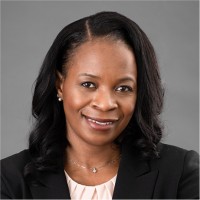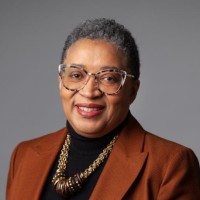Top-Level Takeaways
- A 12-person DEI task force at Teachers Credit union looks for ways to advance the cooperative’s diversity, equity, and inclusion initiatives.
- Early data suggests the task force is moving the needle on several balance sheet metrics, including wallet share.
Teachers Credit Union ($4.0B, South Bend, IN) has worked to raise awareness around diversity and create an inclusive work environment for more than a decade.

In 2008, the Hoosier State cooperative created a Diversity Council that provided diversity training and sponsored community events. It also created programs and blueprints the credit union follows to this day, says assistant vice president of district retail Catrina Tate, who was one of the first members of the council and served as a chair.
After fulfilling its mission, the council dissolved itself in 2016, leaving the credit union with no formal group dedicated to DEI. Calls for racial justice in early 2020, however, spurred Teachers to create a new group that focused on action and deliverables.
Start Something New
As protests for social and racial equity spread across the country, Teachers which is headquartered in South Bend, IN, but has locations in Indianapolis had to close the doors and board the windows at one of its branches.
“Our employees and members had a lot of questions we weren’t prepared to answer,” Tate says. “From my own perspective as an African American woman, in witnessing what was happening and interacting with my peers, I knew it was time for the organization to launch a task force to promote inclusivity. We want to be part of the change.”
Tate met with Teachers’ executive management team in July to discuss options for a new diversity group, one that could take action and present deliverables a DEI task force. This time, the group needed to serve as more than an educational hub for difficult and messy conversations. Employees, including senior leaders, wanted more.

“The fact that senior leaders had the passion for diversity is invaluable,” says Jacquelyn Burns Rucker, director of diversity, equity, and inclusion at Teachers. “They’re in positions where they can take action without asking permission for everything they do.”
To build a new team focused on action, the credit union needed to recruit the right people. As such, the 12 founding members of the DEI task force are a well-tenured, cross-departmental group of employees representing retail, HR, IT, business services, commercial loans, training, and more. In addition to Tate, who serves as a co-chair of the task force, three other members of the group also served on the Diversity Council.
“These employees have been with the organization for a while,” Rucker says. “They know our culture and they’re not going to be scared if they encounter something that could be problematic.”
All task force members serve in management-level roles or higher. The group seeks to influence change and start difficult conversations, so the credit union wanted to ensure the task force members were comfortable in leadership positions and familiar with the credit union’s operations.
Tate and her co-chair approve the agenda for the task force’s monthly meetings. The agenda is influenced by what the task force members see and hear, but employees at any level of the organization may offer questions or ideas. Members discuss ideas broadly during meetings, then assign them to subcommittees. Subcommittees meet on an as-needed basis and put together more detailed implementation plans.
Importantly, ideas can move quickly through the task force. For example, employees at Teachers can speak some 30 different languages. A member of the task force suggested adding languages spoken to employee name badges, and after only a few weeks, a subcommittee had implemented the idea, making the new name badges the norm.
Likewise, when the task force realized there was no bilingual prompt in Teachers’ automated call center messaging, the subcommittee contacted its vendor, PSCU, and discovered the solution was as simple as flipping a switch. Now, Teachers’ members have a menu of languages from which to choose when they call the credit union.
Finally, within a matter of weeks, Teachers launched a diversity-focused webpage to showcase its efforts to members and the community as well as added a section to its intranet where employees can view changes that more directly pertain to them.
“We made it happen,” Rucker says. “It’s a reflection of the initiative our team members take to get things done.”
Make The Change
Teachers’ DEI task force got off the ground in July 2020. One of the group’s first steps was to delve into the organization to understand where Teachers stood on matters of diversity, equity, and inclusion. Was there diversity among its employees? Was it offering products and services to meet an array of needs? Was it working with vendors who aspired to do the same? How could the task force ensure its efforts would endure? Would the work of these employees outlive their time on the task force?
In October, Teachers hired Rucker as the director of diversity, equity, and inclusion in support of its diversity initiatives. Rucker oversees the group and works with the credit union’s executive team and board to advance the task force’s ideas.
The task force tracks big picture DEI goals and presents progress to the board each month. The credit union declines to offer specifics on what it tracks, but percentage of vendors that are minority- or woman-owned as well as percentage of qualified minority applicants are two key items.
“You can look at the metrics, but it’s just as important to ask yourself how you can move the needle,” Tate says.
On the vendor side, that means intentionally including companies owned by monitories or women in the vetting process. On the employment side, it means considering and reconsidering its recruitment sources. Interns often move into full-time employment. Widening the pool of colleges and universities from which it recruits can help increase its number of minority applicants, and that’s exactly what Teachers plans to do this summer.
Diversity is always framed as having a seat at the table. What happens when you do? It moves the credit union forward.
As a credit union committed to serving Hispanic and immigrant consumers it is working to receive a Juntos Avanzamos designation Teachers looks for ways to become a better partner to that community. That means hiring Spanish speakers, making documents available in Spanish, maintaining resources to make the banking experience a little easier for non-English speakers, and more. The credit union is also in the early stages of rethinking its financial counseling and loan suite to better meet the needs of its underserved communities.
Looking forward, the task force wants to collect employee feedback to gauge their satisfaction with the group’s work and determine what other projects or initiatives it could take on. It also wants to better communicate the successes of its DEI efforts. Early data suggests the task force is moving the needle on several balance sheet metrics, such as wallet share, in addition to making the credit union a better place to work. The task force wants to share that far and wide.
“Diversity is always framed as having a seat at the table,” Tate says. “What happens when you do? It moves the credit union forward.”